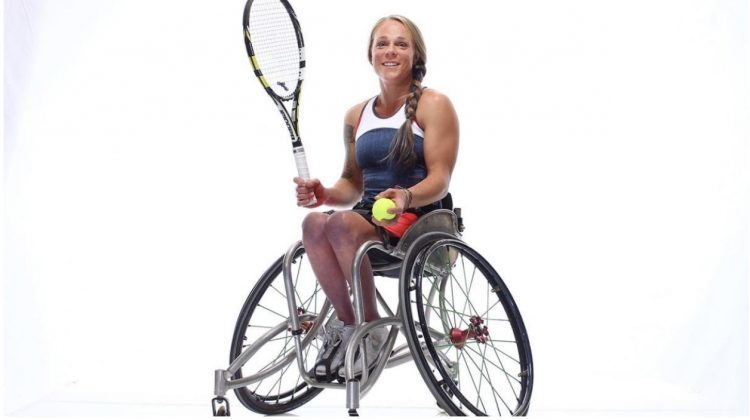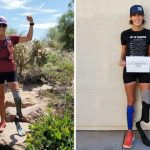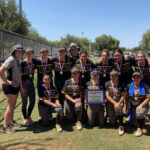Story by Jordan Moffat
Two months ago, Kaitlyn Verfuerth had no plans to even compete in the Paralympic games. After COVID-19 postponed the festivities, she poured all her energy into coaching wheelchair tennis and it quickly became her passion. She was content with life and was almost ready to hang up the oar.
“Not all athletes are great coaches, but we’re fortunate enough to have both in her,” said Gus Lazar, the head of business development at Ability360 in Phoenix, where Kaitlyn trains and coaches at. “She’s a high-spirited, kind and energetic person and it translates well into her coaching. She’s definitely a natural athlete and coach.”
This isn’t Verfuerth’s first trip to the Paralympics, too. She’s been a three-time representative for wheelchair tennis. However, she felt tired of the constant traveling, and after 2016 in Rio, she returned home to get her teaching license and become a coach.
During the opening ceremonies of the 2016 Paralympics, Kaitlyn was coincidentally standing next to para-canoe coach Deb Smith. Looking to try something new, Smith invited Verfuerth to her training facility in Florida and she headed out there in 2017 after the Paralympics were over.
“I’ve really loved water sports since I was a kid, so I was just looking to get involved in something that’s different because para-canoe is a lot different than a lot of other adaptive sports,” Verfuerth said.
Initially, Verfuerth was paddling the sprint kayak and thought that’s what she was there for. Smith instead pushed her a different path. She encouraged her to try the baja, which is a 17-foot long boat that’s awkward and hard to turn.
“It’s hard to maneuver unless you’re only going straight, but to turn it takes a lot of work,” Verfeurth said. “I was like damn, I really don’t know if I want to do that because it just didn’t seem like a lot of fun to me. I didn’t know if I wanted to paddle it.”
Smith was persistent though and eventually Verfuerth gave it a shot, as she was the only one who could do it. In 2019, she was invited to a TIP (talent identification program) camp, where she trained and fell in love with paddling the baja, so much so that she even prefers it now over her sprint kayak.
Outside of wheelchair tennis and para-canoe, Verfuerth also does a lot of hand cycling and wheelchair basketball. Anything that gets her outdoors, the better. Verfuerth and her husband often go camping and hiking, too.
https://www.instagram.com/p/CJT3siUpgPs/?utm_source=ig_web_copy_link
Knowing what to expect going into her fourth Paralympic competition, she’s very relaxed and confident in her ability. She was able to go to the para-canoe test event in 2019 in Tokyo, so she also knows the course and the conditions ahead.
“If you asked me about two months ago about para-canoe, I was really just going to focus on Paris because it’s just three years away. I had just made a big move from Flagstaff to Phoenix, and with my tennis program I started with Ability360, I was just feeling really fulfilled,” Verfuerth said. “My coach called me from Hungary in the second week of the trials and she asked, ‘Do you want to go to Tokyo?’”
As shocked as she was, especially since she didn’t even attend the trials, her coach told her that there were 10 spots to fill for the baja. During the trials, one girl flipped her boat and another rowed out of her lane, so it opened up two more spots and Verfuerth was automatically in.
“I definitely had to get my mind right and wrap my brain around it, but now I’m in my second week of full training and my body feels good,” Verfuerth said. “I’ve just found my stroke again.”
It was a crazy whirlwind, but Verfuerth is now on a set regimen and out on the water each and every day to train for the competition. She’s been perfecting her craft daily while preparing herself locally here in the valley. Being so new to the sport, she’s definitely a dark horse to take home a medal later this summer.
“I don’t even know what my potential is in this sport because I haven’t even trained to my potential,” Verfuerth said. “It wasn’t until we moved down here to Phoenix that I had optimal training conditions. I’m able to get on the water every single day now.”
As she looks ahead to Tokyo later this summer, she’s hoping to take home her first medal and do the best she can to represent the United States on the world’s biggest stage.




